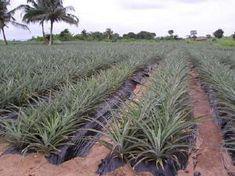
The UK is being urged not to impose its own carbon footprint on organic farmers in developing countries, who face the threat of their products being banned should the Soil Association decide to put a moratorium on organic airfreighted produce entering the UK.
“The Fruits of Development” was a debate held in City Hall, London, last week, which addressed the issue of how to find a balance between food miles and trade and development in Africa.
Seth Dei, a director of Ghanaian fresh-cut fruit firm Blue Skies, kicked off the discussion with an impassioned plea to the UK government and produce industry. “Our fresh-cut organic pineapple, which is certified to Soil Association standards, may soon be refused entry to the UK because of concern over air miles. However, we only use aircraft which are already flying passengers to and from the UK, so are not contributing directly to carbon emissions. We are also conducting studies into our carbon footprint.
“If the UK goes ahead with this potential ban being threatened by the Soil Association, then 1 per cent of Ghana’s export industry would be lost, and our growers would lose their livelihood and be forced back into poverty,” he told the audience.
“One month ago, our farming community was informed of the possibility that our produce may no longer be allowed into the UK,” explained Kweku Abya, a pineapple farmer for Blue Skies. “This caused panic among us - we have spent the last 15 years working to achieve the quality that our produce offers today, and now we are being told our primary market could be snatched away from us. I would appeal to the authorities here to think carefully about their actions, as the impact on our district district could be disastrous.”
Next up was Francis Blake, the Soil Association’s standards and technical director, who put forward his association’s point of view. “Climate change is a real danger. In 2005, the primary reason that consumers bought organic became environmental concern rather than health worries, and that is very significant.
“Airfreight produces 150 times more carbon output than seafreight. We certainly do not want to close down the operations of firms like Blue Skies and its farmers, who have done so much to help poverty in developing nations, but neither can we ignore carbon emissions. To that end, we have embarked on a two-stage consultation, and next spring should have a proposed standard available, which could suggest anything from labelling airfreighted products, as Tesco and Marks & Spencer are already doing, to carbon offsetting, to a complete ban, with stations in-between to help farmers in Africa find viable alternatives to airfreighting to the UK.”
But Dr Camilla Toulmin, director of the International Institute for Environment and Development, disagreed. “This whole debate needs to placed in the broader context of addressing climate change,” she told attendees. “The only fair resolution to this problem is the allocation of rights globally, an equitable deal which would give farmers in countries like Ghana an overbalance of carbon points, as they emit far less than the UK, the US and other western countries, which it could either sell to the UK or use for export requirements.
“We simply cannot let developing countries take the blame for our carbon footprint,” she added.



